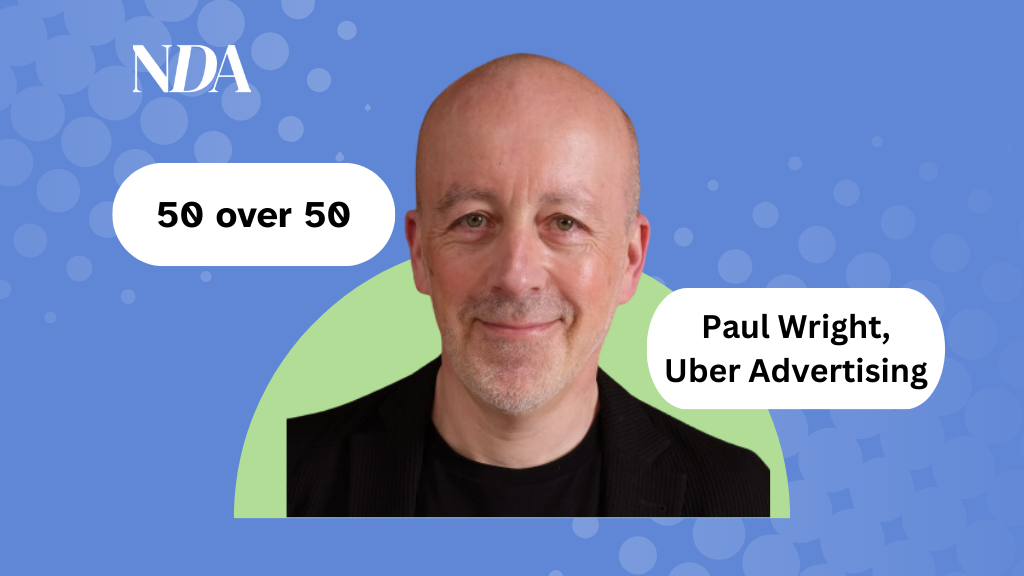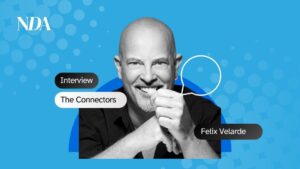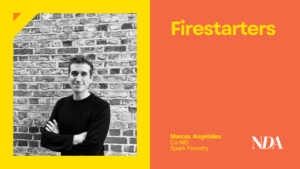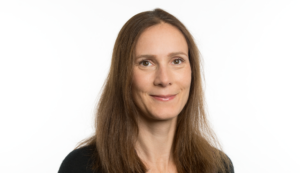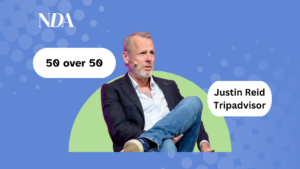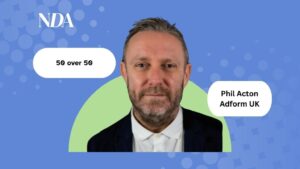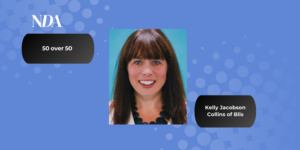50 over 50 is a series of interviews with our most influential and inspiring industry leaders aged 50 and over. Next up, Paul Wright, Head of International at Uber Advertising shares why he believes experience and confidence go hand-in-hand and why he plans to never stop learning…
What one thing are you proudest of in your career?
It has to be in the teams I’ve had the privilege of building, with whose help I credit my greatest successes. I’ve had the honour of working with and leading some exceptionally talented individuals, including the team here at Uber. Each has been united by a shared sense of purpose, diverse perspectives, and most importantly, a sense of fun. After all, a little humour goes a long way – without it, what’s the point?
What heights are you now capable of that you wouldn’t have been able to achieve at the early or mid-point of your career?
Confidence comes with experience. I’ve learned to trust myself and apply the lessons learned from years of navigating a complex industry. Disruption is constant—whether it’s the internet of the ‘90s or AI today— but there’s nothing really new under the sun (despite what some may say), just new iterations of what has gone before. The strategies and mindsets that were valuable then still apply today. The one key thing I have learnt is the most diverse teams are the most successful, so always seek them out.
Elsewhere, I’m now committed to sharing my knowledge, through mentoring, guest speaking or even now as a Governor of Ravensbourne University. It is important to me that all generations are connected and can learn from me and others but equally I can learn from them.
I have also supported various initiatives to help diversity and more recently neurodiversity, which, having been diagnosed with dyslexia relatively late by today’s standards (both my kids are dyslexic too), is very important to me. So the recently launched Neurodiversity in Media, run by Simon Akers and Jaz Poke is critical to help companies navigate this area.
What gives you the most satisfaction in your role today?
Seeing the future leaders of our industry thrive. It is rewarding to watch my team’s hard work pay off and know I’ve played a small part in their growth. When I decide to slow down, I’ll take great pride in seeing where this next generation of talent goes.
More widely working in the industry I still get a buzz when meeting new people, helping where I can and seeing new developments succeed. It is ironic maybe in a world of video calls, slack and more, but being out there and meeting face to face is now more important than ever and something I did in my first role in TV in the 1980s and still do now and still love!
What is the biggest lesson you have learned in your career?
Be comfortable being uncomfortable, and never stop learning. Staying curious has always served me well during my career, including not being afraid to take detours along the way.
I set up a business with some colleagues in 2002, and one of our key potential customers told me early on it would never work. 4 years later, he became a customer, we had a $7 million turnover and we sold the company to Sky.
Equally in 2011 I threw myself into the world of search marketing and media agencies – a completely alien world to me at the time. Instead of shying away, I embraced it, learning completely new skills and perspectives as well as gaining a respect for agency teams and the demands placed upon them.
In my view, pushing yourself to evolve and take on new opportunities is crucial to long-term success. Has it all been plain sailing? Not at all. Indeed, I have made some wrong turns several times, but I probably learnt the most about myself on those detours.
The final thing is one of knowing yourself and what works for you. I know the type of job I will flourish in and equally a role that is not meant to be. It’s your path and your map so do not be guided against what instinctively feels right.
What advice would you give your 25-year old self?
I’d say: relax and enjoy the ride. Starting out I didn’t fully understand the importance of networking and industry events, but I can thank my boss on my second day at Sky for teaching me that this industry is built on your connections.
I’d also tell myself not to stress about having everything figured out. Stay curious, embrace discovery, and trust that things will fall into place.
What is the biggest mistake companies are making in their attitude to age today?
Advertising companies can often overlook the value of professionals over 50. Older professionals are celebrated in industries like science and finance (the average age of a Nobel prize winner is 55), but in advertising, you’re often ignored at this age, he All in 2023 Census found that the industry’s age profile skews heavily towards 25-44, with 12% of respondents in the 55-64 age bracket having felt personally discriminated against due to their age..
You can be seen as “not getting the newest innovations“, even if there is rarely anything new under the sun. There has been after all a focus on Gen Z from some advertisers, event thoughcore expenditure is coming from the over 50’s.
I think we need to celebrate “experience” more – New Digital Age’s 50 over 50 is a great start, and hopefully perceptions will change. For the over 50’s my advice is the same as I have here- stay curious as that will always help and maybe get yourself a mentor to help navigate the world we are in.
Ultimately, in my view , a balance between youth and experience in any team is key to fostering innovation and success.
What is your biggest regret about the industry today?
There are two areas I think the industry today needs to address. The first is around innovation.
In the early dot-com era, experimentation was encouraged. Today, innovation feels stifled by the dominance of some of the large platforms. There’s also a lack of nuanced thinking when it comes to innovation. As consumers become more complex, the need for fresh ideas grows, but some in the industry seem hesitant to act andkeep running the same approaches that worked before.
However, I believe that areas like retail and commerce media will drive the next wave of innovation, pushing the industry to adapt and evolve.
The second is another area that concerns me, which came from the first wave of the web. The obsession with the “click” has taken us to a lot of unintended consequences, which none of us realised back in the day. News as a genre has not benefited from the clickbait model, nor has social media. The rise of mass misinformation and the radicalism of some are a few outcomes but there are more that we are only now beginning to recognise the consequences of. I hope that means we can now have a sensible discussion on how we adjust digital platforms and devices to benefit society.



